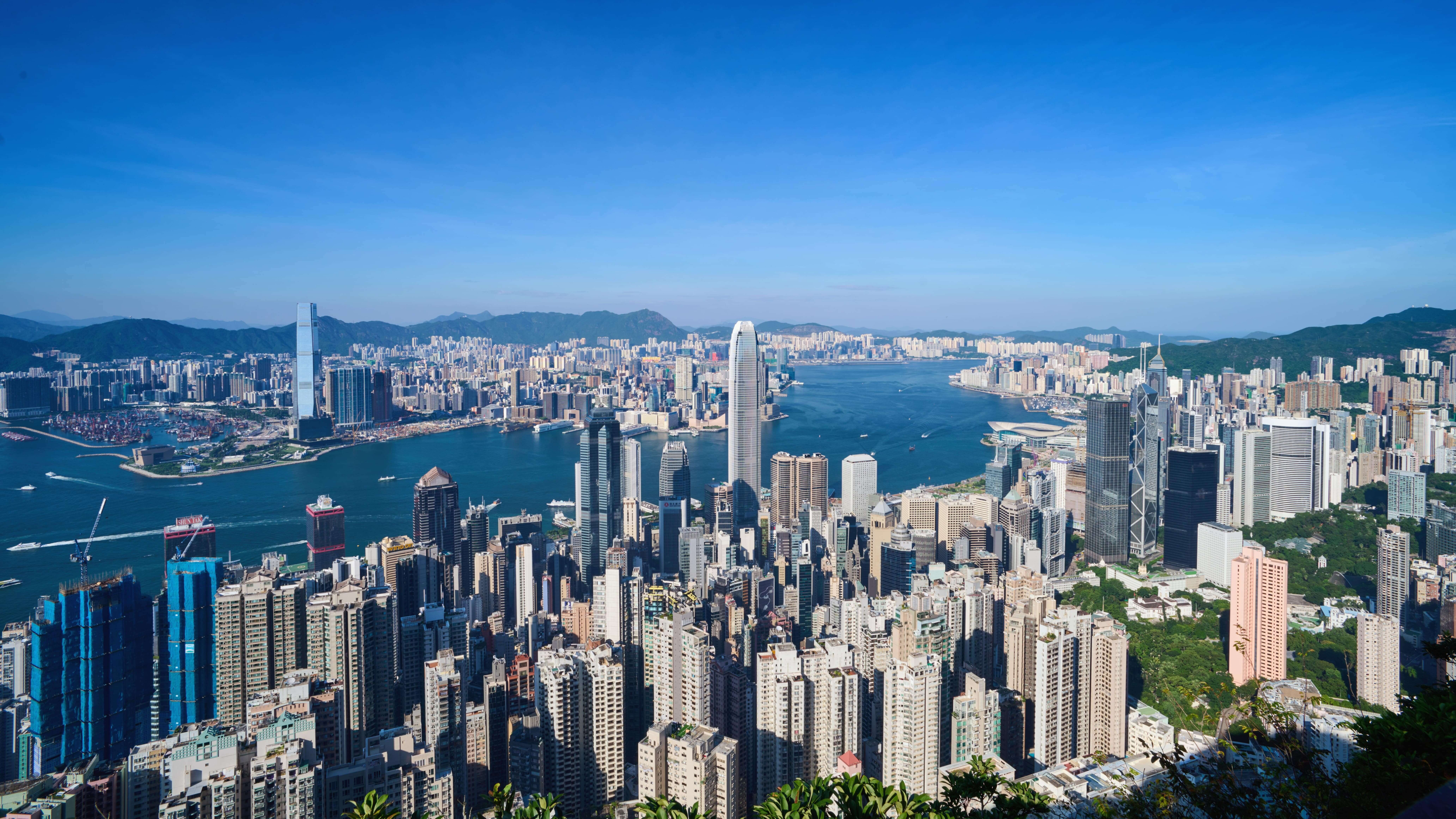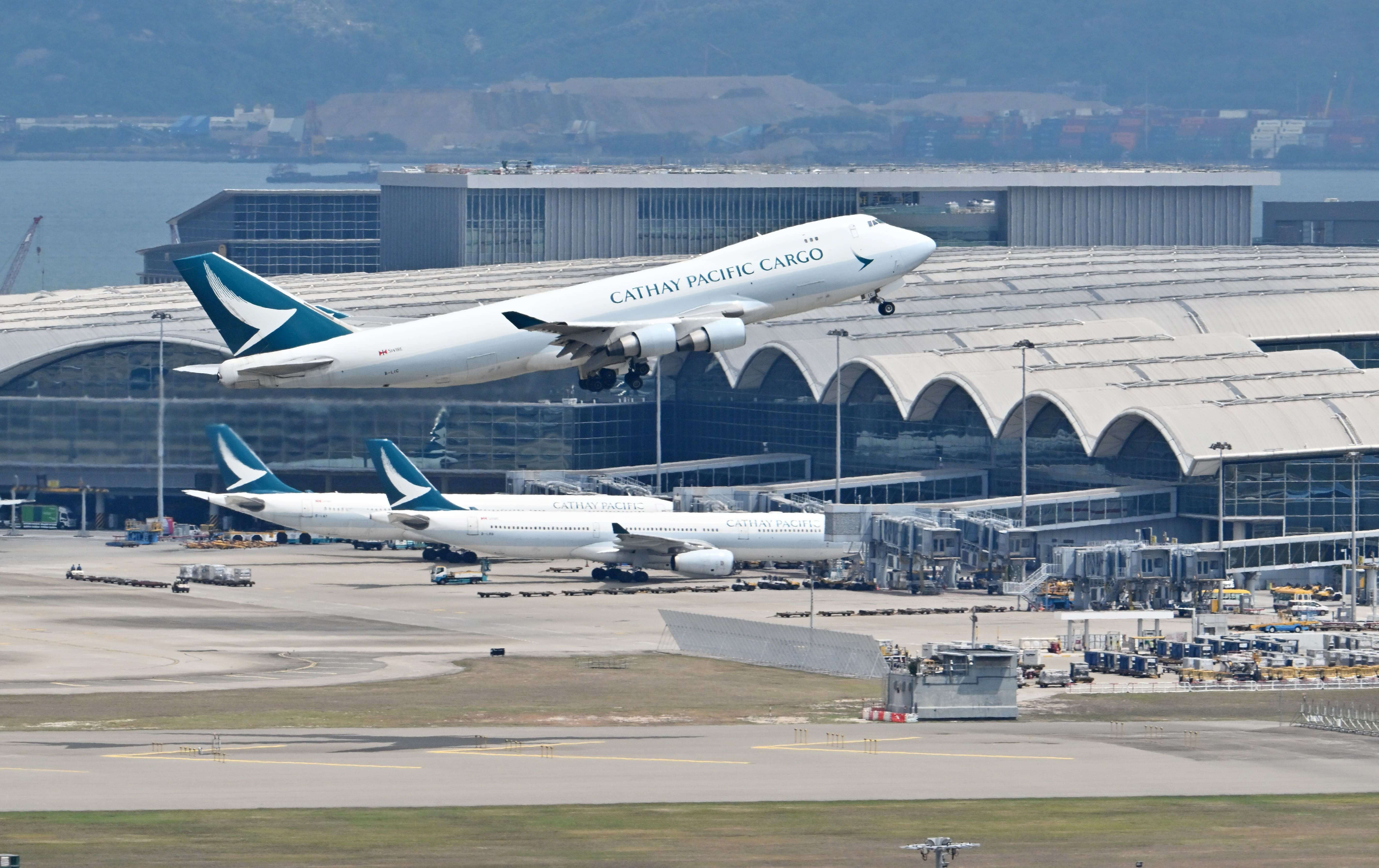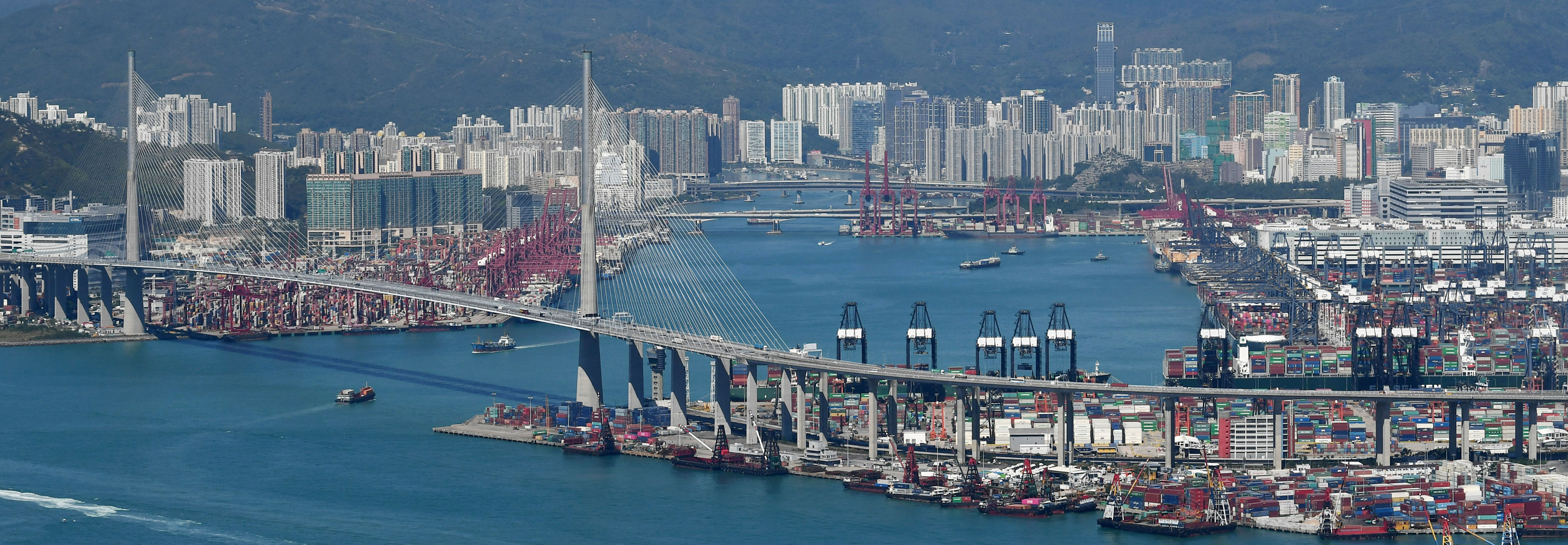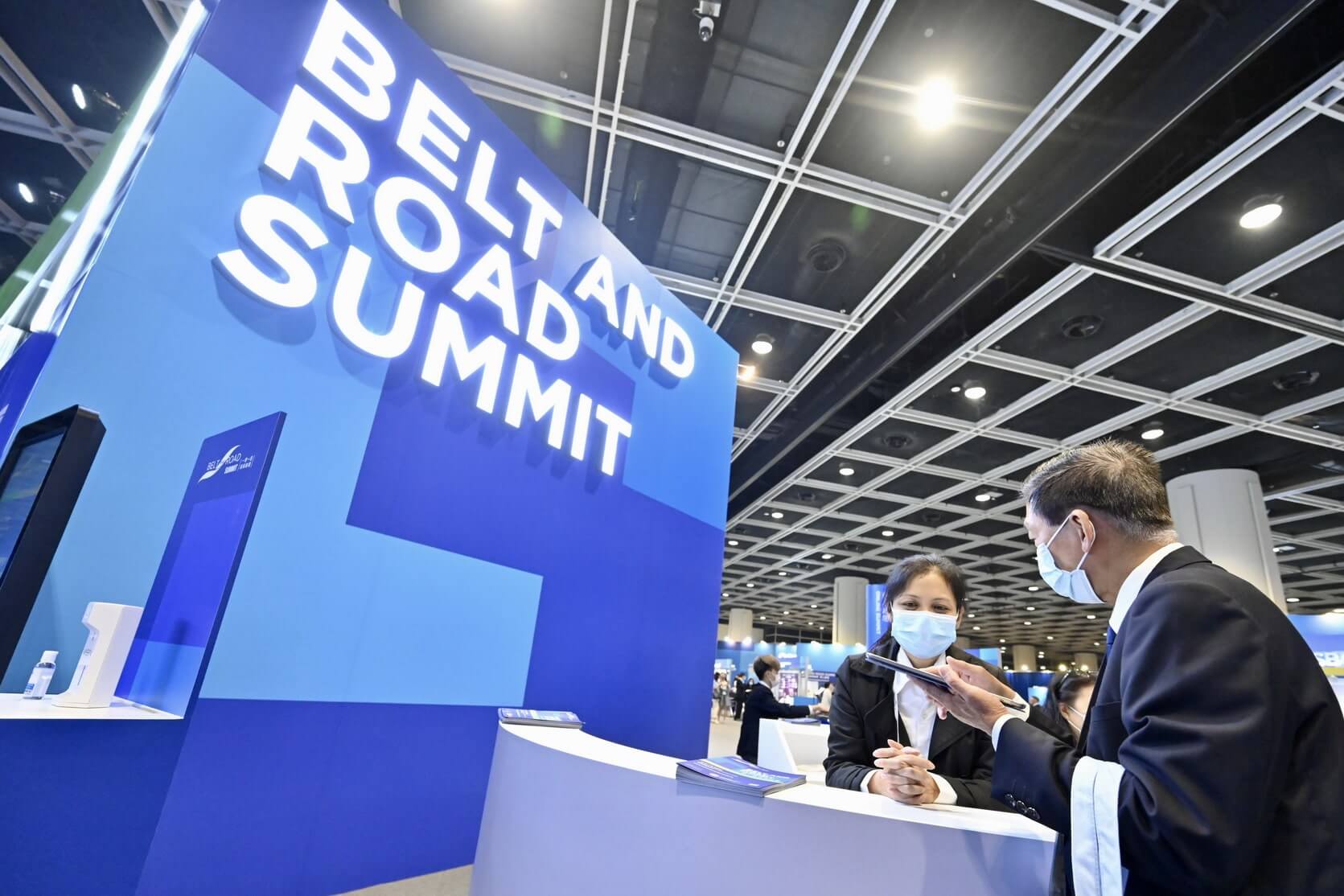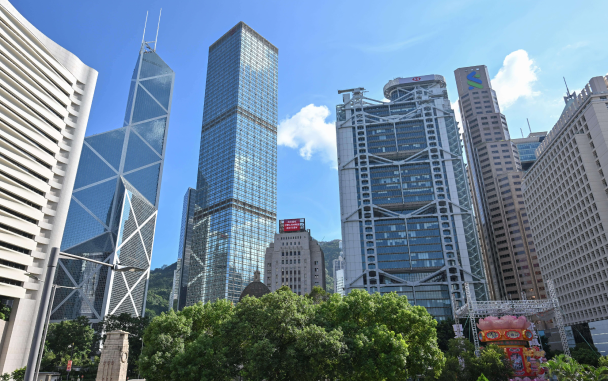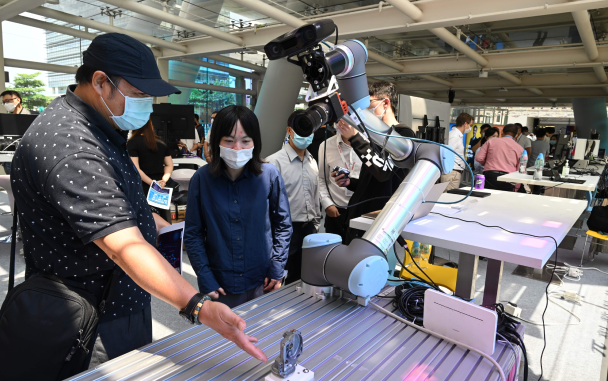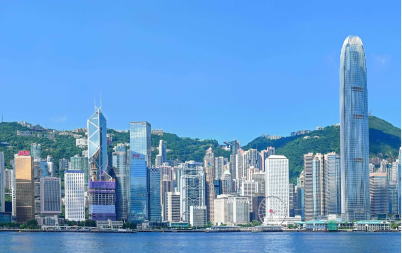Asia’s connection
point
Asia’s connection
point
Now, as global economic activity shifts away from the US and Europe towards Asia, Hong Kong is primed
to
play a central
role, especially for businesses in the UAE and wider region.
“Hong Kong is a major re-exporter into mainland China and, as such, will continue to play a major
part in enabling
UAE businesses to explore opportunities in not just the GBA, but also the whole country,” says Juma
Al-Kait,
Assistant Undersecretary for International Trade Affairs at the UAE Ministry of Economy. “We see an
enormous amount
of untapped potential in a market of 1.4 billion people.
“We certainly recognise the growing importance of the GBA, and its urban cores of Hong Kong and
Shenzhen,” he adds.
“It’s an area that blends world-class industrial, technological, and financial sectors with R&D
capabilities, modern
connectivity and logistics, and a highly skilled, motivated workforce. It’s an entrepreneurial
hotbed that offers
many synergies with the UAE that will create a host of interesting collaborations in the years
ahead.”
Hong Kong is also within a five-hour flight of half the world’s population and its location has meant
it is among the
world’s busiest logistics hubs, for cargo travelling by air or sea, putting it at the centre of
global supply
chains.
Hong Kong's location has meant it is among the world’s busiest logistics hubs, for cargo
travelling by air or sea, putting it at the centre of global supply chains
Gateway to
opportunities
Gateway to
opportunities
Importantly, Hong Kong has free trade accords with mainland China under the Mainland and Hong Kong Closer
Economic
Partnership Arrangement and with the Association of South East Asian Nations (ASEAN), which would
facilitate UAE
companies in tapping the enormous business opportunities in the Mainland and ASEAN markets.
Its integration within the mainland China economy means Hong Kong has become the leading offshore centre
for renminbi
(RMB) trading – a currency which has a growing status in the global economy. Hong Kong now handles about
75 per cent
of the world's RMB cross-border settlements, and it is steadily rolling out more RMB-denominated
investment and risk
management products.
The UAE was among the first countries to join the Belt and Road Initiative (BRI). China’s focus on
pushing the GBA to
reach its full potential bodes well for economic growth in the Mainland and ties into the BRI. And Hong
Kong is the
prime gateway through which many companies in this region can access the vast markets in mainland China
and beyond
as part of the BRI.
“Just as we have become a key gateway to not just the wider Middle East but also East Africa, Hong Kong
remains an
important entry point to China – which is one of the most important markets on the global economic map,”
says
Al-Kait.
Burgeoning trade
Today, Hong Kong is the UAE’s 10th largest trade partner, according to the UAE Ministry of Economy.
Bilateral non-oil trade was worth around $12 billion in
2021, accounting
for almost 85 per cent of all trade between Hong Kong and the Gulf Cooperation Council (GCC).
“Trading ties are incredibly important for both sides,” says Chermaine Lai, Hong Kong Country Head for
UAE-based Mashreq Bank. “The UAE is Hong Kong’s largest trading partner in the Middle East, while Hong
Kong has a vital role to play as a two-way connector.”
Trade has bounced back strongly after the Covid-19 pandemic. The UAE Ministry of Economy says non-oil
trade was
33 per cent higher in
2021 than in 2020 and 44 per cent higher than in 2019.
Some notable recent developments have further strengthened those bonds, including the coming into force
of the Investment Promotion and Protection Agreement in March 2020 and the opening of the Hong Kong
Economic and Trade Office (HKETO) in Dubai in October 2021.
The HKETO in Dubai acts as Hong Kong’s official representative to the GCC. Since opening, it has hosted
business seminars in Abu Dhabi, Doha and Riyadh and engaged officials in Bahrain and Qatar to explore
the possibility of bilateral investment promotion agreements.
“Although we are still a young office, I would say that we have already made our impact felt and raised
Hong Kong’s profile,” says Damian Lee, the Director-General of the HKETO in Dubai. “The Hong Kong
Special Administrative Region Government attaches a great deal of importance to further deepening trade
ties with the region.”
The opening of the HKETO in Dubai highlights the importance of the bilateral trade links. “Being a
financial, commercial and logistics hub, the UAE certainly plays a vital role of radiating Hong Kong’s
interest, in terms of goods, services, talent and capital, to various stakeholders in this region,” says
Lee.
Al-Kait says the opening of the HKETO has had a clear impact. It “has definitely intensified the pace of
economic activity between the UAE and China, contributing to a 28 per cent increase in China-UAE
bilateral trade during the first eight months of 2022,” he says.
Ties that run deep
One business that embodies the close commercial links is trading firm Jacky's Group of Companies, set up
in Hong
Kong in 1970. These days the business is based in Dubai.
With experience of both places, Chief Operating Officer Ashish Panjabi sees plenty of parallels with
Dubai.
“Hong Kong
has got an extremely strong financial services sector, an extremely strong logistics sector, and they’re
both
knowledge economies as well.”
Hong Kong has other advantages, including a simple tax system with low rates. For corporations, profits
tax
rate
for the first HK$2 million of assessable profits is at 8.25 per cent. Profits above that amount is
subject to
the tax rate of 16.5 per cent. For unincorporated businesses such as partnerships and sole traders, the
rates
are 7.5 per cent and 15 per cent, making it an attractive place to set up companies and work.
For Panjabi, personal connections are also vital. “A Hong Kong intermediary adds a lot of elements of
trust,” he
says. “It is easier for people [in Hong Kong] to deal with the mainland Chinese side of business. There
are
advantages of language, of culture that people from Hong Kong have. You have a lot of trading houses in
Hong
Kong that serve as agents that can inspect shipments and verify who the parties in the Mainland are.
“A lot of businesses in this region have got trust in Hong Kong companies,” adds Panjabi. “They can rely
on them.
And this is a major factor. People like to deal with partners they feel comfortable with and places they
can
visit, that they know can give them further opportunities.”
Future prospects
Hong Kong officials would also like the relationship to develop further. Lee says Hong Kong is interested
in a
free trade agreement with the UAE and points to sectors that look particularly promising, including
energy,
transport and logistics, biotech, beauty and make-up, and jewellery. But he adds, “Hong Kong is a free
economy
and we welcome and encourage all suitable sectors to do business in Hong Kong.”
There are plenty of other areas where trade could flourish. UAE officials point to fintech and financial
services, as well as other areas of advanced technology such as blockchain, artificial intelligence, big
data
and cloud computing.
Mashreq Bank’s Lai also points to areas such as renewable energy, telecoms and technology and says, “The
drive
towards smart cities holds vast opportunities through associated technologies and infrastructure
planning.”
Perhaps the main driving force is likely to be the similar approaches the two commercial hubs take to
development.
“The world has always worked through having hubs in different places. Hong Kong has always been a hub in
terms of
wanting to do business in the Far East,” says Panjabi. “This is a relationship that can only go from
strength to
strength.”
